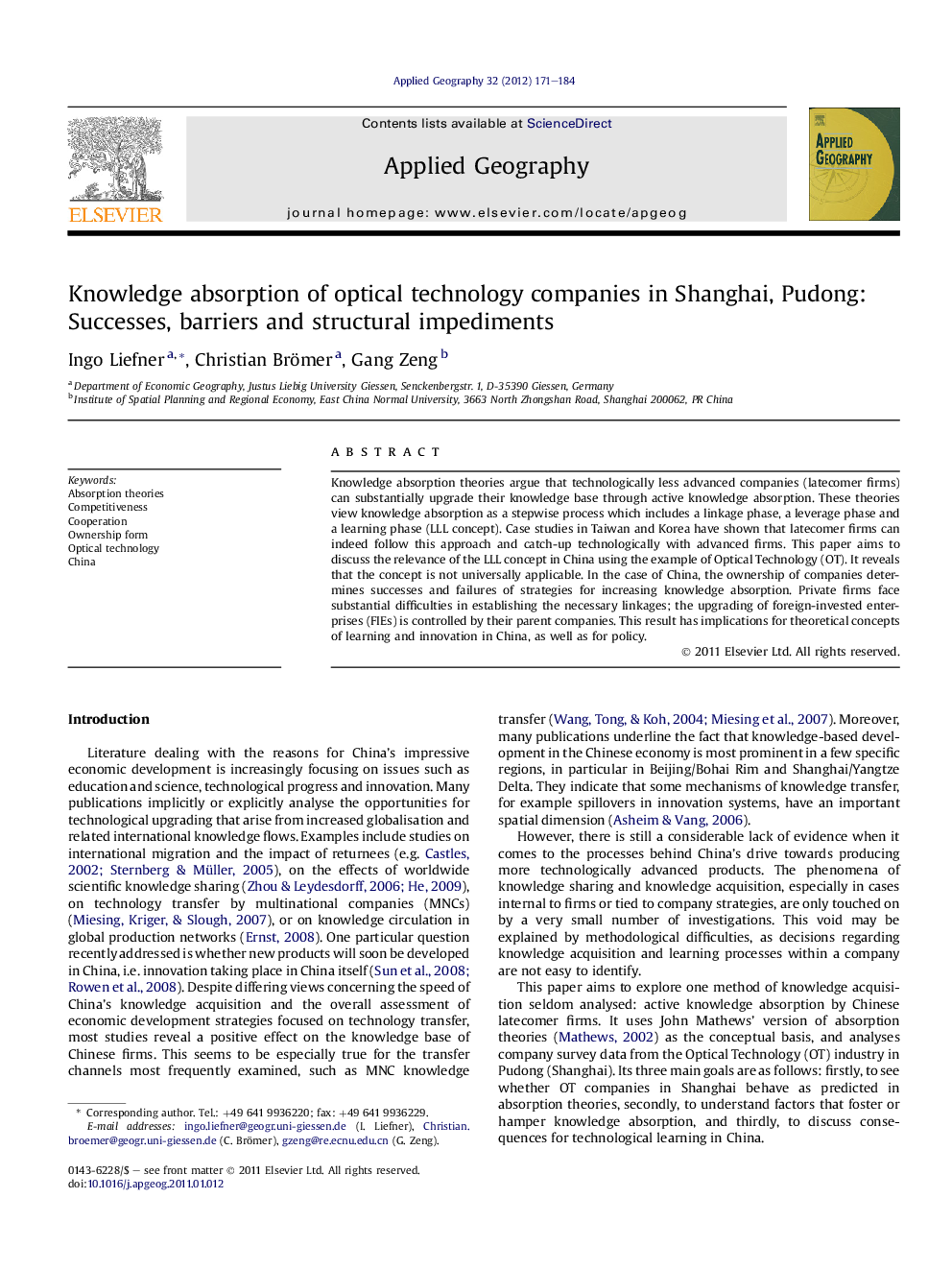| Article ID | Journal | Published Year | Pages | File Type |
|---|---|---|---|---|
| 83529 | Applied Geography | 2012 | 14 Pages |
Knowledge absorption theories argue that technologically less advanced companies (latecomer firms) can substantially upgrade their knowledge base through active knowledge absorption. These theories view knowledge absorption as a stepwise process which includes a linkage phase, a leverage phase and a learning phase (LLL concept). Case studies in Taiwan and Korea have shown that latecomer firms can indeed follow this approach and catch-up technologically with advanced firms. This paper aims to discuss the relevance of the LLL concept in China using the example of Optical Technology (OT). It reveals that the concept is not universally applicable. In the case of China, the ownership of companies determines successes and failures of strategies for increasing knowledge absorption. Private firms face substantial difficulties in establishing the necessary linkages; the upgrading of foreign-invested enterprises (FIEs) is controlled by their parent companies. This result has implications for theoretical concepts of learning and innovation in China, as well as for policy.
► We examine knowledge absorption in the Optical Technology (OT) industry in Shanghai. ► We pay particular attention to linkage, leverage and learning. ► Shanghai's OT companies aim at establishing linkages with foreign companies. ► The privately owned OT companies lack key resources for leverage and learning. ► Foreign-invested OT companies' learning activities depend on their parent firms.
